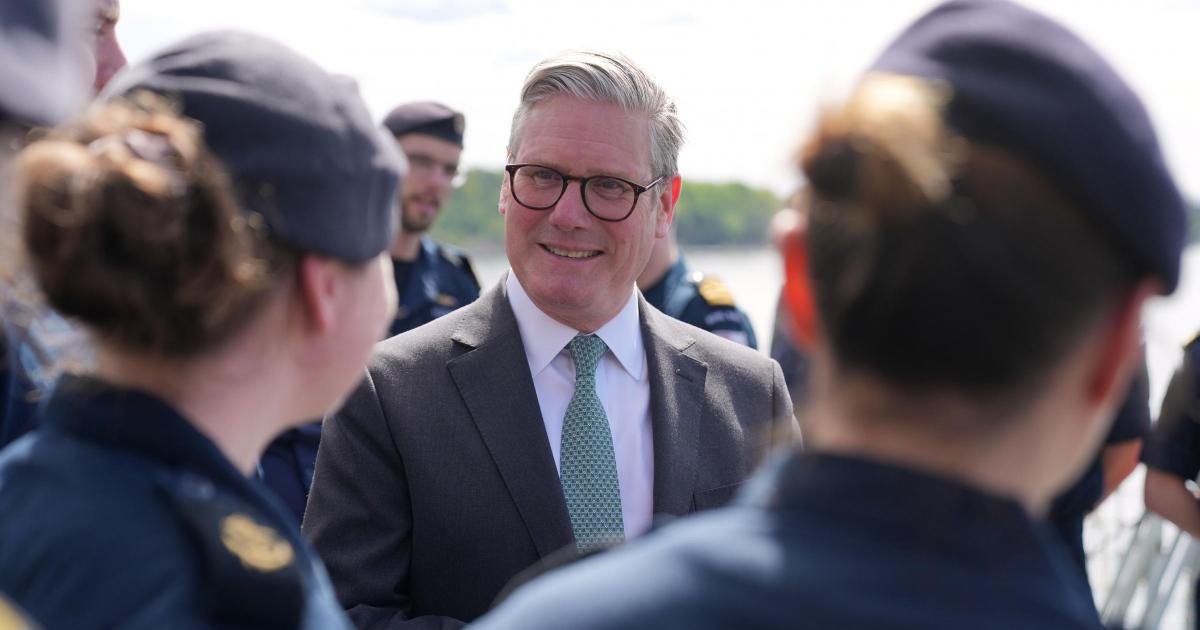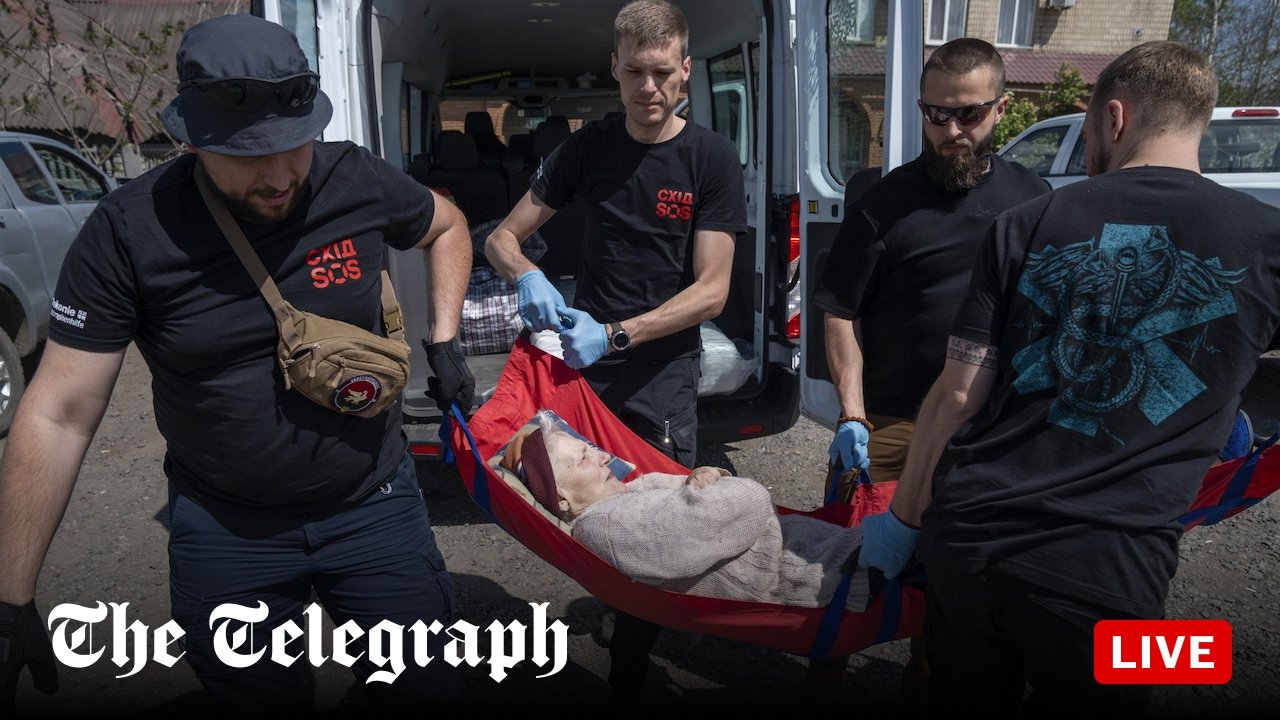Profile
Sections
Local
tv
Featured
More From NBC
Follow NBC News
news Alerts
There are no new alerts at this time
Trump has left Saudi Arabia and is en route to the next stop on his Middle East trip, Qatar.
After landing in Doha, he begins his state visit with an arrival ceremony at the Amiri Diwan Royal Court, followed by the introduction of delegations, a ceremonial tea and coffee, a bilateral meeting, a working lunch and a signing ceremony.
Reporting from Tehran
Syria has always been the heart of the Middle East as its cultural capital. This development is hugely significant both for Syrians and for the Middle East in general.
The Gulf is the business center, it’s where the oil and gas are in the kingdoms and the emirates and it’s the commercial engine that drives the region.
But Syria is the home of the ancient capitals. It has two of the oldest continuously inhabited cities on the planet in Aleppo and the capital Damascus and it is dotted with ancient palaces: Roman, Byzantine, and Islamic ruins and art. It has a fantastic layered history.
This vital country has been gone since the civil war began more than a decade ago. After that it became a no-go, chaotic death-zone, one of the most dangerous places on the planet. Former-President Bashar al Assad’s regime was dropping chemical weapons, it became a hornets nest of different militia groups and the ISIS caliphate was there exporting terrorism around the world.
Now it is being brought back to its rightful place at the center of the Middle East.
On a geopolitical level, it’s very important. During the civil war the country fell more and more under the sway of Iran, Russia and Hezbollah.
Now, it is coming back to the Arab world. The fact that Trump lifted these sanctions with help from Saudi Arabia shows where the country is going. It is coming back to the Middle East.
More than a month after President Donald Trump’s tariff-focused “Liberation Day,” just about all America has won is more deadlines and assurances of ongoing talks.
With China, the U.S. has secured no major changes other than offsetting step-downs of recent import duties and import restrictions.
And an accord with the U.K., announced last Wednesday, offered little beyond improved access for U.S. meats and ethanol.
The White House has said both agreements are starting points. While it’s been enough to soothe international markets and restore U.S. stock gains, the Trump administration has little to show in the way of concessions gained from the agreements.
Read the full story here.
The U.S. is exploring the possibility of normalizing relations with Syria, Trump said.
“We are currently exploring normalizing relations with Syria’s new government, as you know, beginning with my meeting with President Ahmed al-Sharaa,” he said at a meeting of the Gulf Cooperation Council, a grouping of six Gulf nations.
Trump had earlier met with Sharaa, a former rebel leader who became Syrian president in January after the ouster of longtime dictator Bashar al-Assad.
U.S.-Syria diplomatic relations were suspended in 2012 after the start of Syria’s civil war.
Reporting from Washington
The Supreme Court could give a major boost to the Trump administration’s muscular use of executive power when it hears arguments tomorrow over his plan to end birthright citizenship.
The court is not actually using a trio of cases before it to give the final word on whether Trump can radically reinterpret the long-understood meaning of the Constitution’s 14th Amendment. Instead, it will focus on the power of judges to block presidential policies across the country.
Trump’s plan to limit birthright citizenship to people born to at least one parent who is a U.S. citizen or permanent legal resident is likely to ultimately be struck down, most legal experts say. The 14th Amendment states: “All persons born or naturalized in the United States, and subject to the jurisdiction thereof, are citizens of the United States.”
But for now, the Supreme Court — which has a 6-3 conservative majority, including three Trump appointees — is focusing only on the question of whether lower-court judges had the authority to block the policy nationwide, as three did in different cases.
Read the full story here.
In a meeting this morning in Saudi Arabia, Trump encouraged Syrian President Ahmed al-Sharaa to recognize Israel’s statehood, according to a White House readout.
Saudi Arabia’s Crown Prince Mohammed bin Salman was also present and Turkish President Recep Tayyip Erdogan, joined by phone. The readout said both leaders praised Trump’s decision to lift longstanding sanctions on Syria, where Sharaa became president in January after the fall of longtime dictator Bashar al-Assad.
Trump told Sharaa that he had “a tremendous opportunity to do something historic in his country,” the readout said. He urged the Syrian leader to sign on to the Abraham Accords, a framework for Arab states to recognize Israeli sovereignty that the U.S. mediated during Trump’s first term.
He also advised Sharaa to tell foreign terrorists to leave Syria, deport Palestinian terrorists, help the U.S. prevent the resurgence of the Islamic State and assume responsibility for Islamic State detention centers in Syria’s northeast.
Sharaa affirmed his commitment to Syria’s 1974 disengagement with Israel and invited American companies to invest in Syrian oil and gas, the readout said.
Reporting from Riyadh, Saudi Arabia
Trump met with Syrian President Ahmed al-Sharaa in Saudi Arabia this morning, a day after saying he plans to lift longstanding sanctions on Syria.
Trump announced the sanctions rollback yesterday during a speech at a Saudi investment forum, saying it was intended to give Syria “a chance at greatness” after the ouster last year of longtime dictator Bashar al-Assad.
“Oh, what I do for the crown prince,” Trump said in reference to Mohammed bin Salman, Saudi Arabia’s de facto ruler.
Sharaa, who became Syria’s president in January, had previously led a rebel group that helped overthrow Assad, whose family ruled the country with an iron fist for more than 50 years. But he faces major challenges in uniting a country divided by 14 years of civil war.
After his 33-minute meeting with Sharaa, Trump was set to join a meeting of the Gulf Cooperation Council, made up of Saudi Arabia and five other Gulf countries, before continuing on to Doha, Qatar, for a state visit. He will also visit the United Arab Emirates during his four-day Middle East trip, the first planned trip of his second term.
Transportation Secretary Sean Duffy will testify today on Capitol Hill, where he is certain to face tough questions about persistent problems with the air traffic control system at Newark International Airport.
Duffy will testify before the House Appropriations Committee in the morning to defend the White House budget proposal for his department.
Health and Human Service Secretary Robert F. Kennedy Jr. is scheduled to testify today in both the House and Senate to discuss the White House budget proposal.
It will be the first time he has testified before a congressional committee since his confirmation hearing for his Cabinet post.
When he speaks before the Senate Health, Education, Labor and Pensions Committee, it will be the first time in two decades that an HHS secretary has testified about the president’s budget, according to the panel.
The hearing is likely to shed light on the status of Kennedy’s relationship with committee chair Sen. Bill Cassidy, R-La., who had expressed concerns about Kennedy’s nomination over his attitude toward vaccines.
During the confirmation process, Kennedy had agreed to appear before the committee on a quarterly basis, if requested, to secure Cassidy’s support.
Asked whether Kennedy had kept his commitment to not spread misinformation or sow distrust in vaccines, Cassidy recently said: “All I’ll say about the commitments is that so far, he’s lived up them.” Cassidy also said he had a “good working relationship” with Kennedy.
Other Senate Republicans who were on the fence about supporting Kennedy have had positive things to say about him keeping them in the loop.
Sen. Susan Collins of Maine said she often texts the secretary, but still plans to press him on cuts to the National Institutes of Health.
Democrats are also likely to focus on the NIH cutbacks, as well as the measles outbreak, cuts to medical research, prescription drug costs and his vaccines policy, according to multiple senators.
Sen. Andy Kim, D-N.J., told NBC News that Kennedy should be prepared to answer questions about “some of the alarming statements that he’s made over his tenure as secretary.”
Sen. John Hickenlooper, D-Colo., said that he might take a more generalized approach “and just ask him, does he think America is investing enough money in science?”
Yesterday, Sen. Angela Alsobrooks, D-Md., who sits on the committee, filed a resolution of disapproval against Kennedy and called on him to resign, citing concerns about cuts to cancer research, the National Firefighter Cancer Registry and IVF. Alsobrooks is expected try to pass the resolution on the Senate floor this week via unanimous consent, but a Senate Republican will most likely block that effort.
© 2025 NBCUniversal Media, LLC
Trump administration live updates: President meets with Syrian leader in major breakthrough for former jihadi – NBC News



